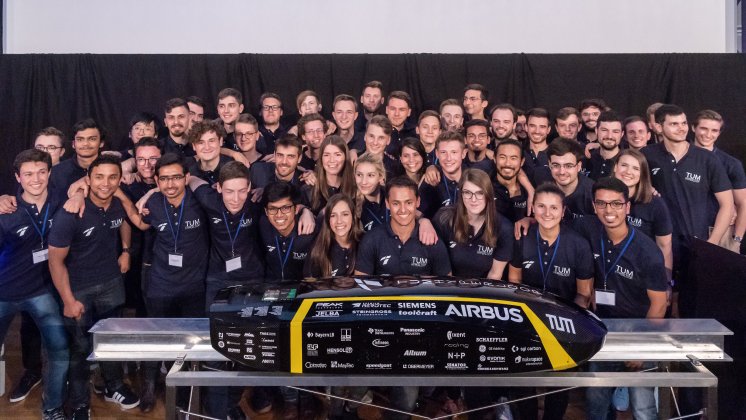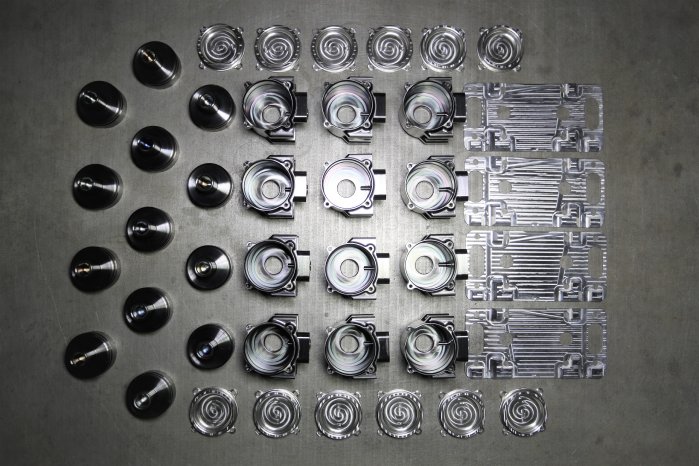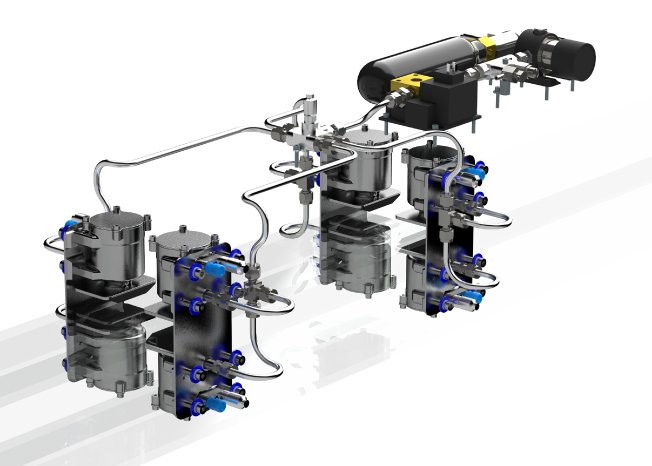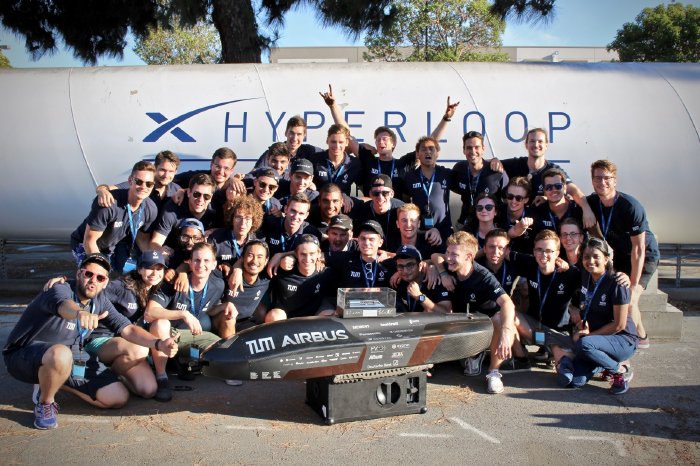Fast, faster, fastest
In August 2018, the pod designed by the Technical University of Munich notched up a top speed of 467 km/h, which is one of the fastest recorded in the world and the highest to ever be achieved by a Hyperloop. This year, the students are trying to reach half the speed of sound. At this speed, the pod needs to be able to come to a complete stop in just under two seconds to avoid it breaking through the end of the tube. The braking distance is just shy of 200 metres. To meet this objective, the students have redesigned their Hyperloop. toolcraft is sponsoring the project again by providing parts for the brakes. The most important change this year is the "normally closed design", which is making the system much more fail-safe. The braking system is made up of eight double-acting cylinders. One chamber serves as a pneumatic spring, while the others release and open the brake. The total braking power amounts to 8,250 N. To save on weight, the geometry is considerably more complex than in the previous year, meaning that the brake components are also more complicated to produce. Each brake cylinder takes between eight and ten hours to manufacture. All the parts – from the brake bodies and brake cylinders to the covers and supports – are made from titanium.
The perfect choice for constructing the Hyperloop 4.0
TUM Hyperloop has established a research department to help it perform better in the competition and to further develop the idea of the Hyperloop transport system. The team has set itself the target of building a small-scale model of a working Hyperloop system to allow valuable insights to be gained in advance. In July, the actual pod will travel through the approximately one-mile-long Hyperloop system built by SpaceX at its headquarters in Hawthorne, California. One of the most significant new criteria of this year's competition is that the teams must use their own communication system to communicate with their pod during the race. TUM's new pod was rolled out on 19 June and the competition itself will take place in Los Angeles on 21 July.





